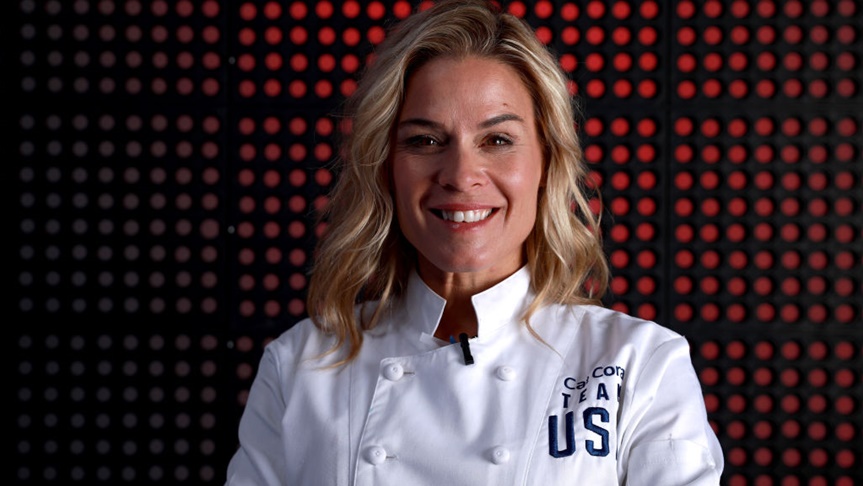The Honest Tea co-founder, whose latest ventures include vegan fast-casual chain PLNT Burger, dishes on the future of food

Courtesy subject
Food connects, in some way, with virtually every challenge the world faces. Seth Goldman connects, in some way, with virtually every aspect of food. His résumé includes stints working at food startups, and at corporate, vegan, and philanthropic food organizations. Inc. asked Goldman about food’s future.
Related Posts
Inc.: The pandemic and recession transformed consumers’ relationships with food. Which changes do you think will last? Which will be temporary?
Goldman: One that will stick is this sense of connectedness. With the pandemic, we saw that the way someone around the world interacts with animals can have an impact on us. We saw how workers were treated at meat factories. The barriers food suppliers have built between what happens before and after something is on the shelf have broken down. So people are starting to think more holistically about the impact of their choices.
Inc.: What about our newfound obsession with cooking?
Goldman: We are certainly cooking more, which is a positive thing. But I think people also appreciate it when they don’t have to cook. I do think the food service will come back.
Inc.: Food delivery has grown in the past six months as much as it had in the previous five years. What are the implications for real estate?
Goldman: It no longer makes sense to pay fixed rent for space people can’t sit in. I think you will see a lot more ghost kitchens–restaurants that offer only pickup and delivery. PLNT Burger exists only in Whole Foods, where, rather than fixed rent, we pay a percentage of sales. So you pay only if you are succeeding.
Inc.: Will Whole Foods become as pivotal to introducing restaurant concepts as it has been to launching new local brands through its Forager program?
Goldman: I wouldn’t be surprised if other stores adopted this model. Why shouldn’t a Home Depot be a shell for restaurants, or a Cabela’s? What would be the right food to serve those particular shoppers and the right experience? It all comes down to how much revenue per square foot those businesses generate. I think entrepreneurs will want to take advantage of these things.
Inc.: Speaking of big food–are consumers turning against food conglomerates?
Goldman: People may talk negatively about big food, but it is having an amazing year. The conglomerates are primarily packaged food companies, and there has been a huge influx of growth to the retail channel. Some small companies are still doing really well. But when there is stress on the supply chain, the little guy feels it more. So I don’t think there has been a rejection of big food. If anything, Covid may have brought people back to the brands they grew up with.
Inc.: What does that mean for entrepreneurial food businesses?
Goldman: Big food companies recognize the products they built over the preceding 120 years are not going to drive all their growth in the next 120 years. They know they have to evolve, and they are doing that: Some through innovation and some through acquisition. I think challenger brands that find the right formula will see incredible opportunities. It’s like in the car industry. Just because the big car companies have the infrastructure to make electric vehicles doesn’t mean they can hold off Tesla. So they will try to replicate what these challenger brands are doing. And if they can’t beat them, then they will give up and buy them.
Inc.: That worked out very well for Honest Tea when it was acquired by Coca-Cola.
Goldman: The Honest Tea experience showed that entrepreneurs can scale inside a large company without giving up what is important to them. If Coke had said we are going to buy Honest Tea just to put away a competitor, then that would have been a bad outcome. But it was not the case. Instead, they said we are going to help grow this brand. Because from Coke’s perspective, it would expand its revenue base and their customer base. My perspective was that instead of being in 15,000 stores I can be in 150,000 stores and grow my sales 11-fold and my impact 11-fold.
Inc.: At least in big cities on the coasts, it feels as though veganism is becoming mainstream. Is it?
Goldman: Veganism is certainly growing but from a very small base. The percentage of vegans and vegetarians in the population is around 5 percent. But I think the right thing to measure is how many people are having plant-based meals. I don’t expect that 5 percent will become 10 percent anytime soon. But I do expect people to have at least one more plant-based meal per week. You know about Meatless Mondays. There is also a thing called VB6: vegan before 6 p.m. I will eat plant-based until dinner. Or V-January. I am going to be vegan or vegetarian just for January. There is a lot of baggage associated with the term “vegan.” It is both unrealistic and polarizing to try to persuade everyone to switch. This approach makes it far more accessible.
Another thing: Vegans are extremely social. When they get excited about something, you will hear about it. For food launches, that does drive excitement.
Inc.: Access to fresh, healthy food is an economic justice issue. How can the industry help make healthy food more affordable and available?
Goldman: This is one reason the outcomes for Covid have been so bad in poor communities. There’s a new movie called They’re Trying to Kill Us about the institutional racism built into our food system. At Eat the Change, we’ve seen some really innovative programs focused on this. DC Greens, for example, lets doctors write prescriptions for fresh produce and provides subsidies to fill them.
Inc.: What are some innovative ways food businesses are tackling climate change?
Goldman: There are lots of efforts to replace animal-based food. Ocean Hugger has a replica for fish. And there is some very neat stuff happening with packaging. Footprint, in Arizona, creates compostable food containers.
Inc.: Companies like Sweetgreen, in which you are an investor, are putting a lot more emphasis on technology. Why is that?
Goldman: Two big trends are happening in food. There’s the redoing of food–where science and culinary art are used to recreate a category (as Beyond Meat did with meat). The other trend is the undoing of food–food presented authentically and organically. That’s Sweetgreen’s approach. The company uses technology for things like mobile ordering and tracking customers’ menu preferences. Either way, food companies have to be tech relevant.

INC / Balkantimes.press
Napomena o autorskim pravima: Dozvoljeno preuzimanje sadržaja isključivo uz navođenje linka prema stranici našeg portala sa koje je sadržaj preuzet. Stavovi izraženi u ovom tekstu autorovi su i ne odražavaju nužno uredničku politiku The Balkantimes Press.
Copyright Notice: It is allowed to download the content only by providing a link to the page of our portal from which the content was downloaded. The views expressed in this text are those of the authors and do not necessarily reflect the editorial policies of The Balkantimes Press.






